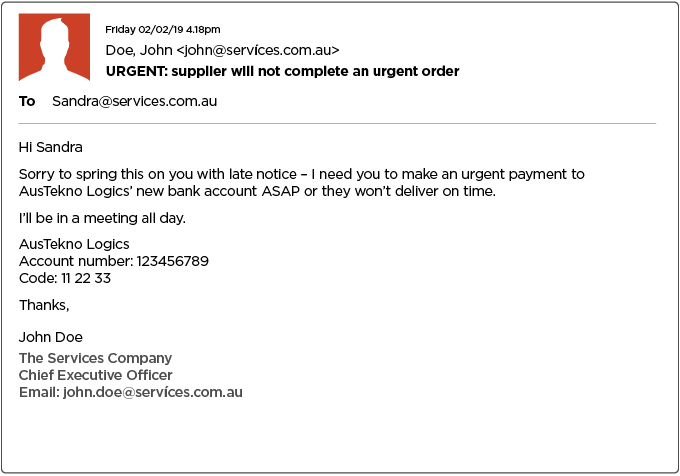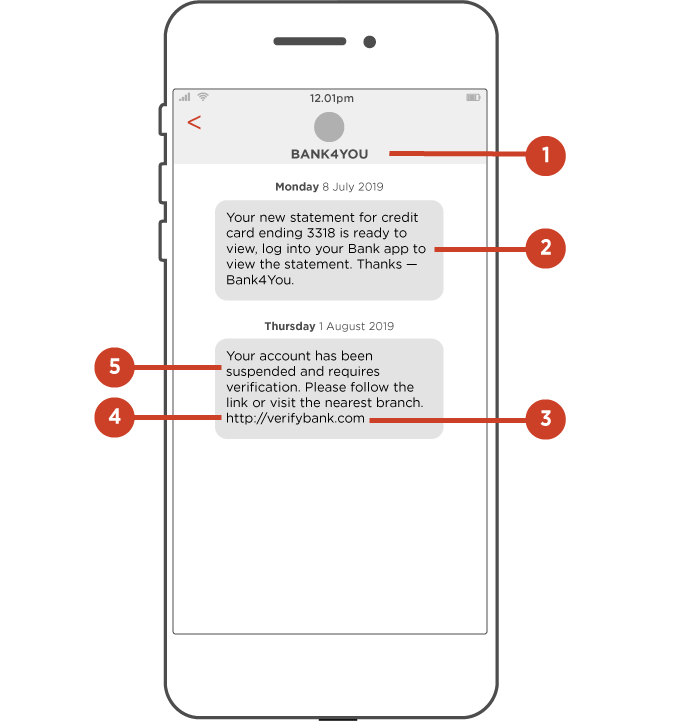Tricky quiz shows just how hard it can be to spot a scam

Your phone buzzes with a message: “You’ve won $2 million!! Click HERE to claim your prize! Hurry, this prize expires in three hours.”
You hit delete - that was obviously a scam.
But, the Australian consumer watchdog, the ACCC is warning, not all scams are as easy to spot.
Related story: ‘Is this legit?’: Australia Post customers confused by scam text
Related story: The 2019 tax time scams you need to watch out for
Related story: Warning: This type of scam has skyrocketed, and it’s targeting Aussies
It has put together a scam quiz, designed to challenge Australians’ beliefs that they are too smart to fall for a scam.
So, how good are you at spotting a scam?
AusPost scam
There are five signs that this email is a scam. Can you pick up on all of them?

What’s the answer?

There’s something not right about that email address - check out that domain name, @yandex.com.au. That definitely doesn’t look like it’s owned by AusPost.
Addess? That’s not a word. Keep an eye out for spelling and grammatical errors. They’re a big sign you’re on to a scam.
It’s asking you to do something; in this instance, update your personal details. This means the scammer could be looking to use this information to steal your identity or target you with a scam.
And it wants you to hit a link - this is a massive red flag. If you visit the link, it could direct you to a phishing website. If you are worried the email isn’t a scam, the best thing to do is to visit the site - in this instance, AusPost - directly, rather than through the link provided in the email.
The scammers want you to do it now. Warnings about fees or an expiry date are generally there to encourage you to act quickly and without thinking, so make sure you take the time to consider suspicious emails before hitting any links.
‘I need you to make a payment’
Your boss is asking you to make an urgent payment - it’s unusual, but they’re your boss.
Can you spot the three signs that this isn’t actually from your boss?

What’s the answer?

If you look closely, you’ll notice that that isn’t an ‘i’ in the email address, it’s a different character. The email hasn’t come from the John Doe you know, but it sure looks a lot like it.
As with the above scam, “John Doe” wants you to transfer the money urgently. This is designed to get victims to act quickly without thinking.
They’ve given you their personal account details - this isn’t company policy, and even though this looks like it’s your boss, you need to think hard about why they would want you to depart from the usual payment processes at your job.
This cute puppy could be yours
You’ve been looking to fill that void in your life with a puppy and have done some research. Then, one day, this ad pops up online. It’s the dog you’re after, and the breeder is selling it at a cheap price. But, there are some alarm bells ringing. What are the four indicators that this ad is a scam?

What’s the answer?

That puppy is cute. Too cute. You go a reverse image search on Google and realise why, this is a stock photo of a cute puppy - not one taken by the “breeder”. When buying pets, always ask to see the animal before you purchase, or request extra videos or photos.
$500 for a Dachsund? That’s so cheap. Scams will often offer deals at prices that are extremely low to entice you in. Remember, if it looks too good to be true, it probably is.
They want to organise the transport. As the ACCC says, “Puppy scammers often claim that they live or have moved interstate or overseas, so you’ll need to pay extra costs like transport, insurance or customs costs. Local pickup will usually not appear as an option.”
That payment method is not secure. They want you to pay by money order or wire transfer - this should be a warning sign. Reputable sellers will generally ask for payment through PayPal or credit card.
‘Your account has been suspended’
Uh oh. You’ve received an SMS from your bank telling you your account has been suspended. You don’t know why, but the message is from the same number as previously legitimate messages from your bank. But something’s up, can you spot the five signs this message is a con?

What’s the answer?

The message is fake, even though the address looks real. While the first SMS is legitimate, the second is a scam. Be careful to avoid falling into the trap of thinking that just because it looks like it’s from your bank, it is. Scammers are good at “spoofing” real phone numbers and email addresses.
The first email is legitimate, the second is a scam. One sign of this is that the style is different, and asks you to visit a link that could lead to a dangerous website.
That link is dodgy. Even if you think the message is real, it’s best to avoid hitting any links in texts and emails, and instead visit your bank’s site by going directly to their website.
Legitimate sites will almost always use https:, not http. However, scammers may also use https: just to appear legitimate, so don’t let that lull you into a false sense of security.
As with earlier examples, the text has a sense of urgency. It wants you to hit the link now, but you really shouldn’t.
This BBQ is $500 off
Summer’s around the corner and it’s time to buy a bbq. You’ve done a bit of searching and you see an ad pop up on social media selling name brand barbies for incredible prices.
But once you get to the website, there are a few things that don’t seem quite right. What are the four warning signs?

What’s the answer?

The address begins with http, not https. This is a big red flag.
The clock is timing down, giving it a sense of urgency. Again, this is a huge warning sign.
That price is too low. It looks like you’ll be scoring a massive bargain, but you’ll actually just be falling into a scam.
Look at that payment method: “Scammers often ask you to pay by non-secure payment methods such as wire, bank or international funds transfers, money orders, pre-loaded gift cards, and cryptocurrency like Bitcoin,” the ACCC said.
“These methods are difficult to track and it’s rare to recover money sent this way. Always look for secure payment options such as PayPal or credit card.”
So, how did you go?
Make your money work with Yahoo Finance’s daily newsletter. Sign up here and stay on top of the latest money, news and tech news.

 Yahoo Finance
Yahoo Finance 

